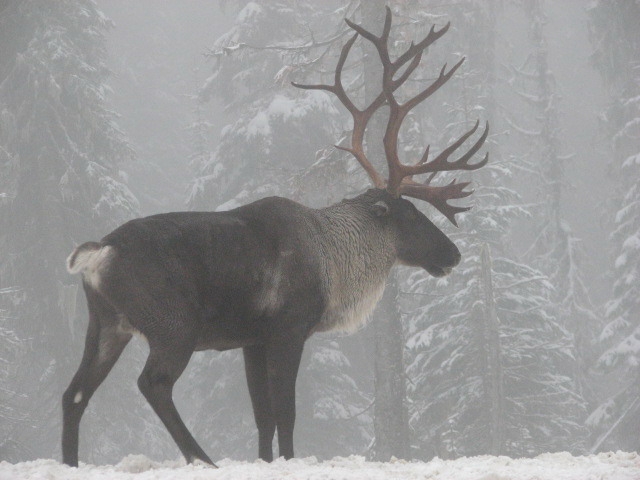This article was originally published by the Toronto Star.

Scientists have been tracking the decline of boreal caribou in Canada for decades. Researchers have spent years studying the impacts of forestry and other industrial development on this elusive animal.
The expectation is policy-makers will manage human impacts in caribou habitat on the basis of science. Indeed, evidence-based policy-making is the cornerstone of sound wildlife management.
So, it is heartbreaking to see caribou endure prolonged political inaction despite overwhelming scientific evidence that decisive action is needed to protect the at-risk species and its habitat. This year alone, the Quebec government announced it will not be taking action to recover the severely threatened Val-d’Or caribou herd, the Government of Alberta gave the federal government notice that it will suspend portions of its caribou protection plan without additional federal money, and the Government of Ontario extended the forestry industry’s regulatory exemption from the Endangered Species Act.
From killing wolves to airlifting caribou to placing pregnant female caribou in pens, governments are using precious time and resources on Band-Aid solutions, while neglecting the need to protect caribou’s critical habitat.
Science has contributed to a better understanding of the vulnerability of caribou to industrial development and there is strong evidence indicating what governments must do to stem further population declines. At the same time, campaigns of denial promoted by some sectors of industry have unfortunately intensified in the public sphere.
Read more:
Ontario government to use helicopters to move endangered caribou herd off wolf-laden island
Opinion | We don’t have to choose between jobs and saving woodland caribou
Major companies urge Canadian government to protect boreal forests and caribou
We believe these campaigns are contributing to confusion over the vulnerability of caribou populations to industrial development and are likely frustrating political action in support of conservation.
In 2015, we started tracking the use (and abuse) of science within the public sphere on boreal caribou decline. The findings of our investigation were published in the peer-reviewed scientific journal Wildlife Society Bulletin this week. We found a troubling pattern. Opinions being disseminated by several industry associations, politicians and forest companies, particularly in their communications to forestry-dependent communities, appeared to be using the same misinformation tactics used in climate change denial. Namely, deny the problem exists, deny the source of the problem, and claim the cost of resolving the problem is too high.
Vitriolic attacks on “the messengers” have also become commonplace in this debate. Calling out those who call for regulatory change in support of caribou conservation as “eco-terrorists” or “environmental extremists” (as some political leaders have done) signals that we have entered a new era in public discourse where even the most basic rules for rational debate have apparently gone out the window.
Are there legitimate areas of uncertainty in caribou conservation and management? Of course. All scientific knowledge is evolving. But managing wildlife populations sustainably means that we have to be able to respond adaptively and in a timely fashion to the knowledge that we do have.
If we want to resolve this political impasse, we need to start with facts. Boreal caribou are one of the most well‐studied species in Canada. Factors affecting boreal caribou are complex; nonetheless, decades of scientific research are available to inform public policy. Scientific research has shown, time and again, clear, consistent and convergent results across the country: increases in habitat disturbance result in the greater likelihood of population decline and location extirpation of caribou. We have more to learn, particularly in anticipating how climate change will exacerbate the impacts of human-caused disturbance. But we have sufficient scientific understanding to move ahead now with plans to protect caribou and their critical habitats.
The misinformation is delaying the essential task of ensuring that wildlife populations, like boreal caribou, are carefully managed. The longer governments delay habitat recovery measures, the more likely boreal caribou will continue to decline, and the greater the cost will be. We have no doubt that, as with climate change, the opportunity to address the problem is now.
Dr. Faisal Moola, PhD is an associate professor in the Department of Geography, Environment and Geomatics at the University of Guelph and a wildlife policy researcher with the Raincoast Conservation Foundation. Dr. Julee Boan, PhD manages Ontario Nature’s Boreal Program. Dr. Jay Malcolm, PhD is a professor in the Faculty of Forestry at the University of Toronto.